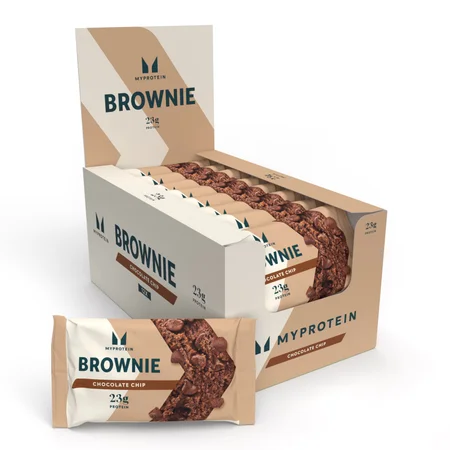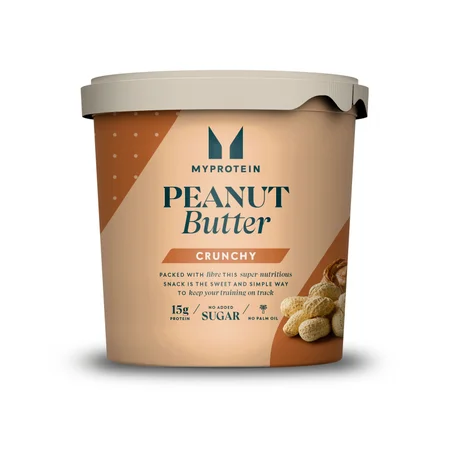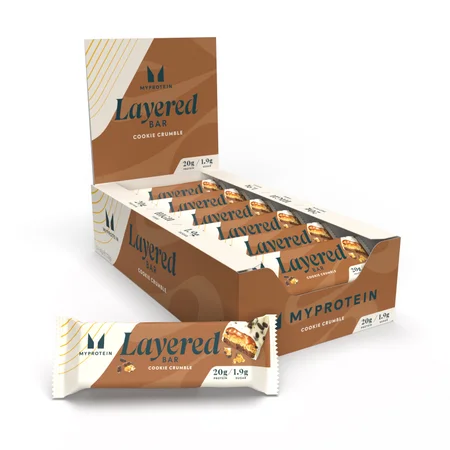The 10 Most Nutrient-Dense Foods
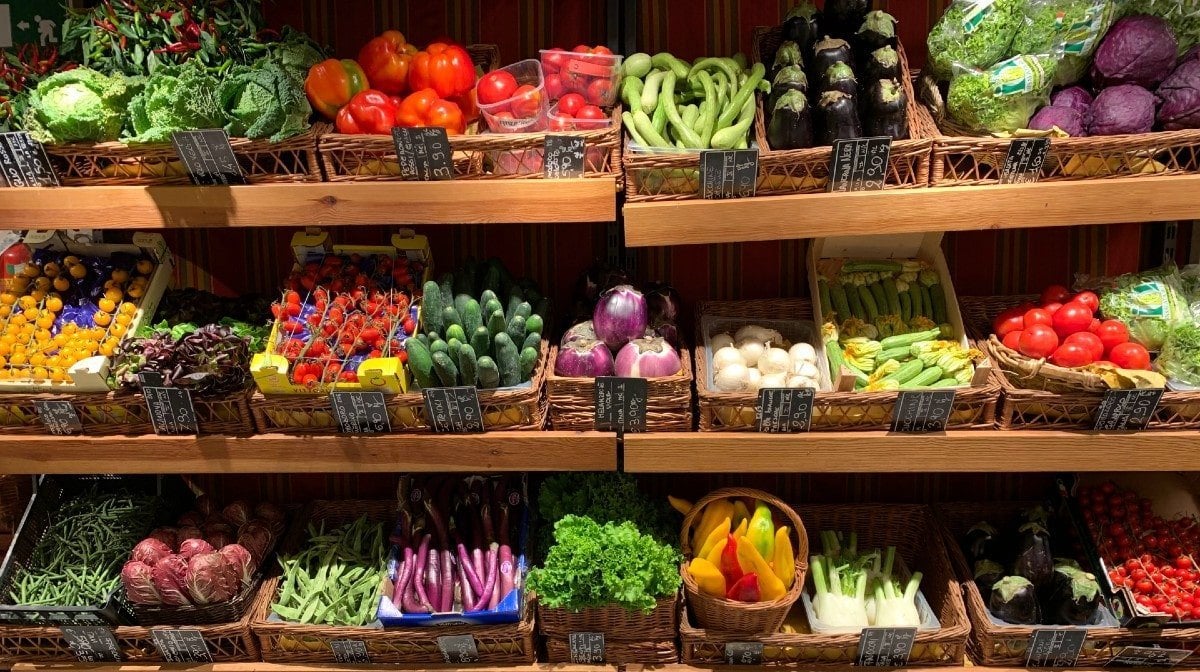
Nutrient dense foods are the most important to have in your diet. Foods that are dense in nutrients mean they contain high levels of macros, vitamins, or minerals for a serving size or calorie amount. If you’re trying to get the most nutrition in your foods, make sure to include the foods below when you’re meal planning.
Nutrient density can be used to help identify the healthiest items to buy on a budget; other times (like on a long hike) you may want to choose nutrient dense foods that pack a lot of calories or nutrition into a small volume.

The 10 most nutrient dense foods
1. Kale
Kale used to be a decoration on a plate but is now a well-known nutritional powerhouse that can be eaten as salad greens or added to other dishes like soups and stir-frys. 100g of kale (which is a lot!) contains 49 calories, less than 1g of fat, 9g of carbs and 4g of protein.
2. Spinach
Spinach, like kale, is packed with nutrients but low in calories. Both spinach and kale can be cooked down to even further concentrate their nutrient density. 100g of spinach contains about 23 calories, less than 1g of fat, 4g of carbs and 3g of protein.
3. Mushrooms
While high in water content, mushrooms are a unique vegetable source of both Vitamin B12 and Vitamin D, which are typically found in animal-based foods. Different varieties of mushrooms contain various levels of nutrients, but all high in fibre and B vitamins.
4. Potatoes
You might not think of a starchy vegetable like potatoes as being nutrient dense, but many health organisations also consider price when it comes to nutrient density. Potatoes are one vegetable that can last a long time, be prepared in many different ways, and provide Vitamins B1, B3, and B6, and minerals potassium, phosphorus and magnesium.5 100g of potato contains: 77 calories, less than 1g of fat, 17g of carbs and 2g of protein.
5. Brussels sprouts
These might not be your favourite element of your Christmas dinner, but their nutrient density is not one to be overlooked.
Not only packed with fibre, but also with more than 1.5 times the RDA for Vitamin C, brussels sprouts are a nutrient dense member of the cabbage family.
6. Blueberries
Packed with anthocyanins (powerful antioxidant plant compounds) in addition to Vitamins C, K, potassium, manganese and fibre, blueberries are a superfood fruit packed with nutrition.
7. Lentils
A plant-based protein staple for many cultures, lentils are packed with macros, fibre, iron, zinc, and selenium. As far as vitamins go, lentils contribute Vitamin A, B Vitamins, Vitamin K, and Vitamin E.
Who said making lentils was difficult? Our one-pot lentil dhal proves otherwise...

One-Pot Lentil Dahl & Homemade Naan | Easy Vegan Meal Prep
Packed with plant-based protein, this lentil dahl is a delicious way to spice up your lunch break.
8. Salmon
While all fish are good sources of protein, salmon are a uniquely nutrient dense (and energy dense) fish packed with heart healthy omega-3 fatty acids, as well as B vitamins, potassium, selenium, and magnesium.
Speaking of easy meals...
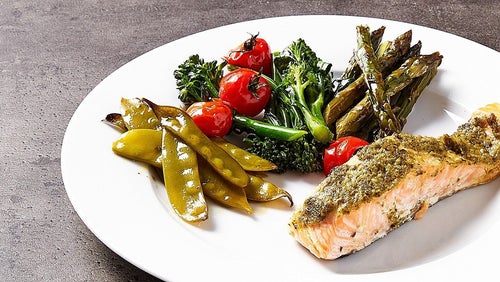
One-Tray Pesto Salmon Meal Prep | Mood-Boosting Foods
Here’s a delicious way to make sure you’re getting those mood-boosting omega-3s.
9. Eggs
Due to their cholesterol content, the nutrition of eggs has been debated for years. However, we know that the protein and vitamin and mineral content of eggs makes them a nutrient dense food and that their cholesterol doesn’t have a huge impact on dietary cholesterol.
100g of eggs provide 155 calories, 11g of fat, 1g of carbs and 13g of protein.
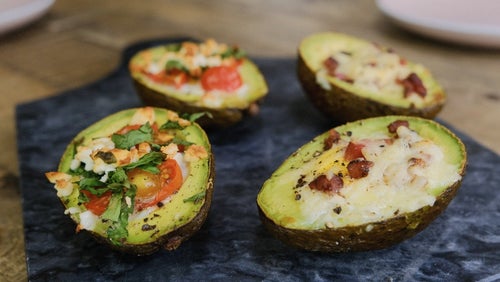
Avocado Baked Eggs 2 Ways | Delicious Keto-Friendly Breakfast
You'll think you've died and gone to brunch heaven...
10. Shellfish
Oysters, scallops, mussels and clams provide some nutrients that can be hard to find in other non-red meat food sources. While not the most commonly eaten fish, shellfish offer excellent levels of B12, as well as other B Vitamins and Vitamin C.
Take home message
READ THESE NEXT:

Claire is a Registered Dietitian through the Academy of Nutrition and Dietetics and a board-certified Health and Wellness Coach through the International Consortium for Health and Wellness Coaching. She has a Bachelor of Science in Biology and a Master’s degree in Clinical Dietetics and Nutrition from the University of Pittsburgh.
Talking and writing about food and fitness is at the heart of Claire’s ethos as she loves to use her experience to help others meet their health and wellness goals.
Claire is also a certified indoor cycling instructor and loves the mental and physical boost she gets from regular runs and yoga classes. When she’s not keeping fit herself, she’s cheering on her hometown’s sports teams in Pittsburgh, or cooking for her family in the kitchen.
Find out more about Claire’s experience here.
